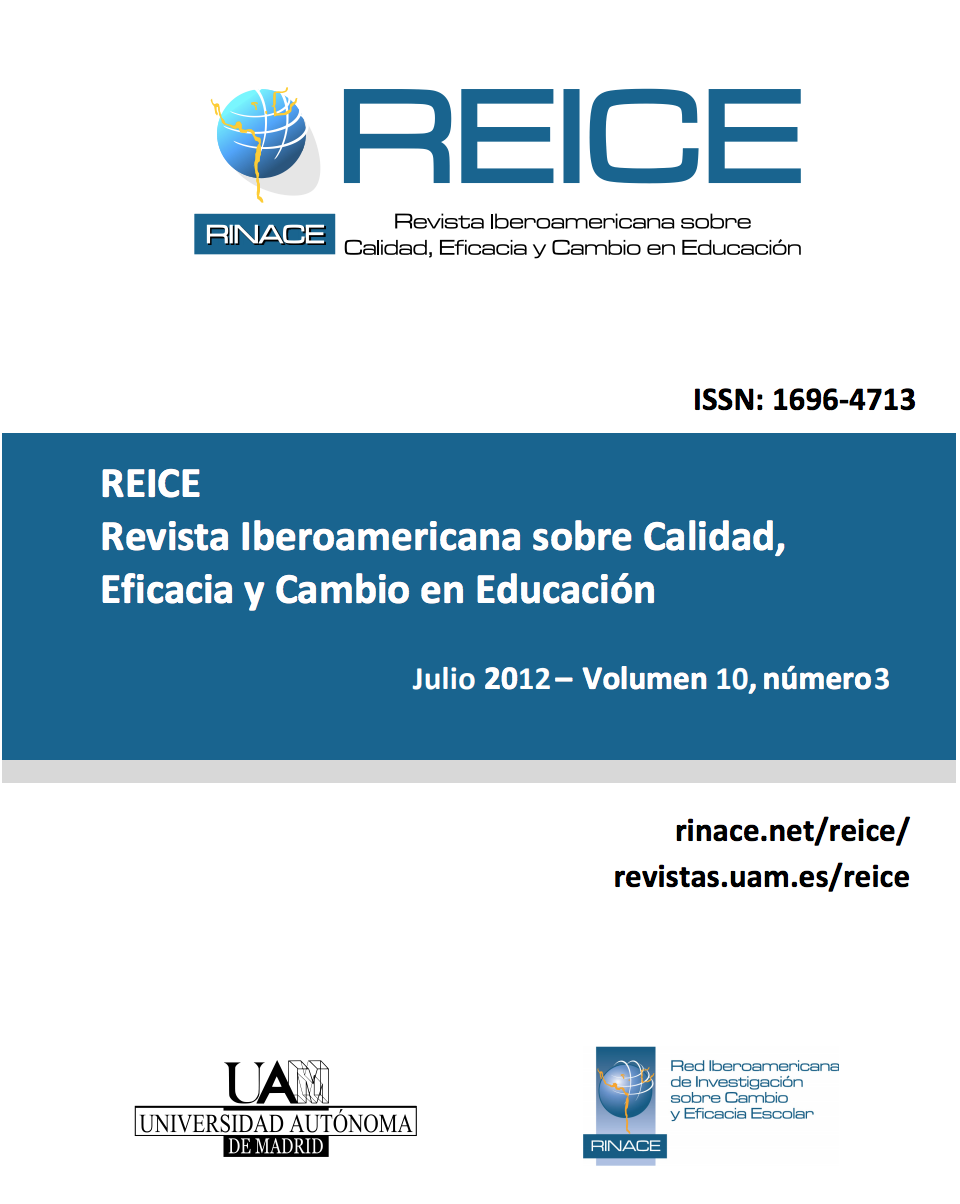A Qualitative Study of the Impact of the School Council in Relation of Education Training Demands of Their Members in Rural Australia
Keywords:
School councils, professional development, rural schools, New Wales.Copyright (c) 2016 REICE. Revista Iberoamericana sobre Calidad, Eficacia y Cambio en Educación

This work is licensed under a Creative Commons Attribution-NonCommercial-NoDerivatives 4.0 International License.
Abstract
School councils have worked successfully in non-government schools, in New South Wales, for many years. However, the establishment of school councils in the government schools have had a much shorter history. This study focused on government schools in rural areas of western New South Wales and specifically examined the impact of the school councils and the relation with the professional development and training needs of these school council members. The findings indicated that school council members expressed concern about their inexperience as council members. Further, they identified the following areas within which they should specifically seek professional development and training: identifying and analysing the educational needs of the school and its community; enhancing and facilitating better communication between the school and its community; assisting the principal to understand local community politics; and promoting public education within the local community. The results of these priority training needs have relevance for policy makers and professional development leaders at the systemic or departmental level.
Downloads
References
Bauch, P. and E. Goldring (1998). Parent-teacher participation in the context of school governance. Peabody Journal of Education. 73 (1) 15-35.
Beare, H. (1984). Community/parent involvement in education (with a postscript). Educational Magazine. 41 (2), 2-7.
Boylan, C and J. Davis (1999). The functions of school councils in Canada and Australia. Education in Rural Australia. 9 (2), 13-26.
Boylan, C. R. and L. Bittar (2001). School Councils in New South Wales, A Report to The New South Wales Department of Education and Training. Sydney: DET.
CAP School (2008). Programa para áreas rurales de Nueva Gales del Sur (New South Wales Country Areas Program) Disponible en: http://www.cap.nsw.edu.au/cap_school_profile.htm [Consulta: 19/03/2008]
Collins, T. (2007). Rural schools and communities: Perspectives on interdependence. Urban and Rural Community Education. 8 (2) 15-24.
Diekelmann, N., Allen, D., Tanner, C. (1989). The NLN Criteria for Appraisal of Baccalaureate Programs: A Critical Hermeneutic Analysis. New York: TheNational League for Nursing.
Education Department of South Australia (1990). Parent participation in schools. Adelaide:Education Department of South Australia.
Feng, S. D. (1997). The operations of Kentucky school councils, Paper presented at Research Forum of National Rural Education Association annual meeting. Tucson, Arizona. September 24-30.
Flaxman, E. (2007). The promise of urban community schooling. Urban and Rural Community Education. 8 (2) 5-14.
Fullan, M. and J. Quinn (1996) School councils: Non-event or capacity building for reform. Orbit. 27 (4) 2-6.
Hargreaves, A. (2000). Four Ages of Professionalism and Professional Learning. Teachers and Teaching: History and Practice. 6(2) 151-182.
Hofman, R.H., A. Hofman and H. Guldemond (2002). School governance culture and student achievement. International Journal of Leadership in Education. 5 (3) 249-272.
Mackay, H. (2007). Advanced Australia … Where? Sydney: Hachette Australia.
NSW DET. (2008). School council guidelines, New South Wales Department of Education and Training. Sydney: DET.
NSW DET. (2009). Classification of government schools in New South Wales, New South Wales Department of Education and Training. Sydney: DET.
NSW DSE. (1995). School councils, New South Wales Department of School Education. Sydney:DET.
NSW-Public School (2009) New South Wales school regions. Disponible en: http://www.schools.nsw.edu.au/regions/index.php [Consulta: 2009, 15 de marzo].
O’Sullivan, D. (1998). School governance and management: The Principal-Board of Trustees relationship, Waikato Journal of Education, 1 (4) 175-189.
Payne, L. (2003). School governance as the management of dilemmas: Marketing or mission. Auckland: AARE Conference Auckland.
Radnor, H.A., S. J. Ball and C. Vincent (1997). Whither democratic accountability in education? An investigation into headteachers’ perspectives on accountability in the 1990’s with reference to their relationships with the LEAs and governors, Research Papers in Education. 12 (2) 205-222.
Scott, R. (1990). School Centred Education. New South Wales Education Portfolio: Sydney.
School Councils (2004) Association of School Councils in Victoria. http://www.asciv.org.au [Consulta: 2008, 15 de marzo].
Senge, P. (1990). The fifth discipline: The art and practice of the learning organisation. New York: NEH Assembly.
VICCSO (2004). The work of school councils, Victorian Council of School Organisations. Disponible en: http://www.vicnet.net.au/~viccso/ [Consulta:2009, 8 de octubre]
Vinson, A. (2007). Inquiry into the provision of public education in New South Wales, Third report. Sidney:DET.
Wignall, R. (2007). Challenges for school councils. Orbit, 27 (4) 45-49.
